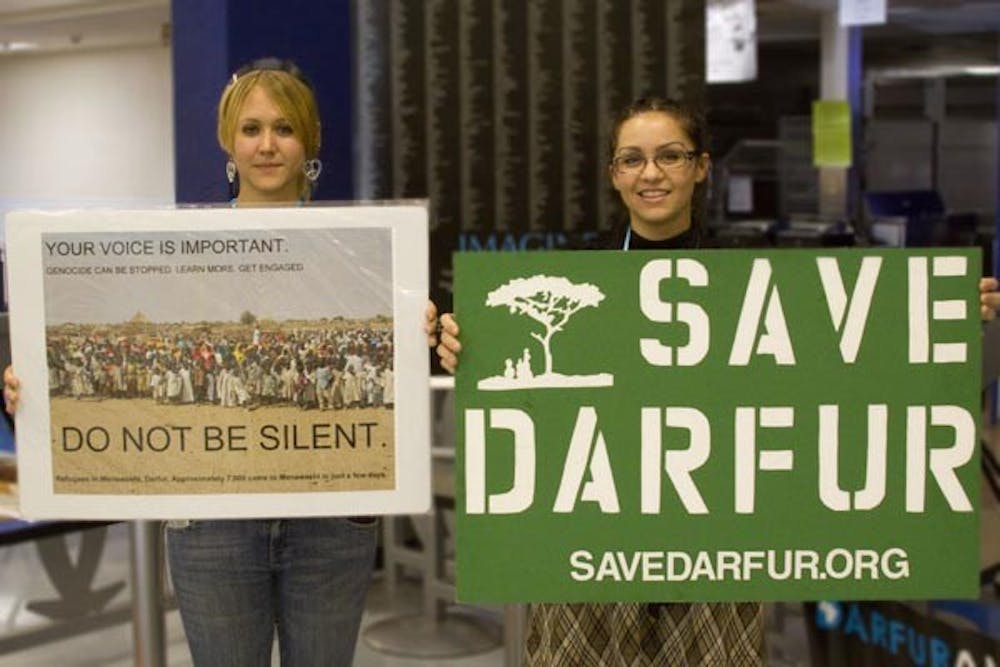An ASU branch of a global advocacy group urged high school and college students to get involved in raising awareness of genocide in Africa at a conference held Saturday.
The ASU chapter of STAND, the student-led division of the Genocide Intervention Network, hosted the event, titled STAND Up 4 Africa, at Dobson High School in Mesa.
The event included ASU professors and former Africa residents that urged students to get the message out about atrocities in African nations, such as Sudan and Uganda, where millions have been killed in genocides that have occurred in recent decades, according to the group’s website.
Speakers at the event also encouraged and outlined ways for student activist groups to spread the message at their schools, suggesting they hold fundraisers and other events to get more students involved.
State Rep. Kyrsten Sinema, D-Phoenix, a keynote speaker at the event, said that although students may not think they can make a difference, age really doesn’t matter.
“What matters is that you care deeply about an issue,” Sinema said.
Naomi Natale, another keynote speaker, said that interests or skill sets also do not matter, and that anyone can and should get involved with raising awareness.
“There is a place in the movement for everyone,” Natale said.
Natale is a graphic artist who is spearheading a project called One Million Bones, in which she plans to scatter one million “bones” – made from plaster casts or other materials collected from all over the country – on the National Mall in Washington, D.C. in order to symbolize a mass grave to raise awareness for genocide.
“Most of us will never understand what a mass grave looks or sounds or smells like,” Natale said, explaining part of the motivation for her project.
Natale added that the project was intended to get government attention, saying that such a display would be hard for Congress to ignore.
She said she has collected 3,000 bones for the project so far. She plans to spread them on the mall in 2013.
Christina Massey, national communications coordinator for STAND, said it was important that students find a core set of values for which they can stand up.
“Our values are what make us choose the life we live,” Massey said. “Our stand incorporates all of our values.”
The conference had a special focus on the African country of Sudan, where genocides have occurred in both the Southern and Western regions.
In the Southern region, an estimated 2 million Africans were killed between 1983 and 2005, and in the Western region, known as the Darfur region, an estimated 400,000 Africans have been killed.
History professor Debra Neill said it is important that action be taken to solve these issues, not only for the obvious human nature reasons, but also because what happens internationally can directly affect the U.S.
“It doesn’t stay contained,” Neill said. “There are consequences for us.”
Reach the reporter at Michael.reppenhagen@asu.edu





